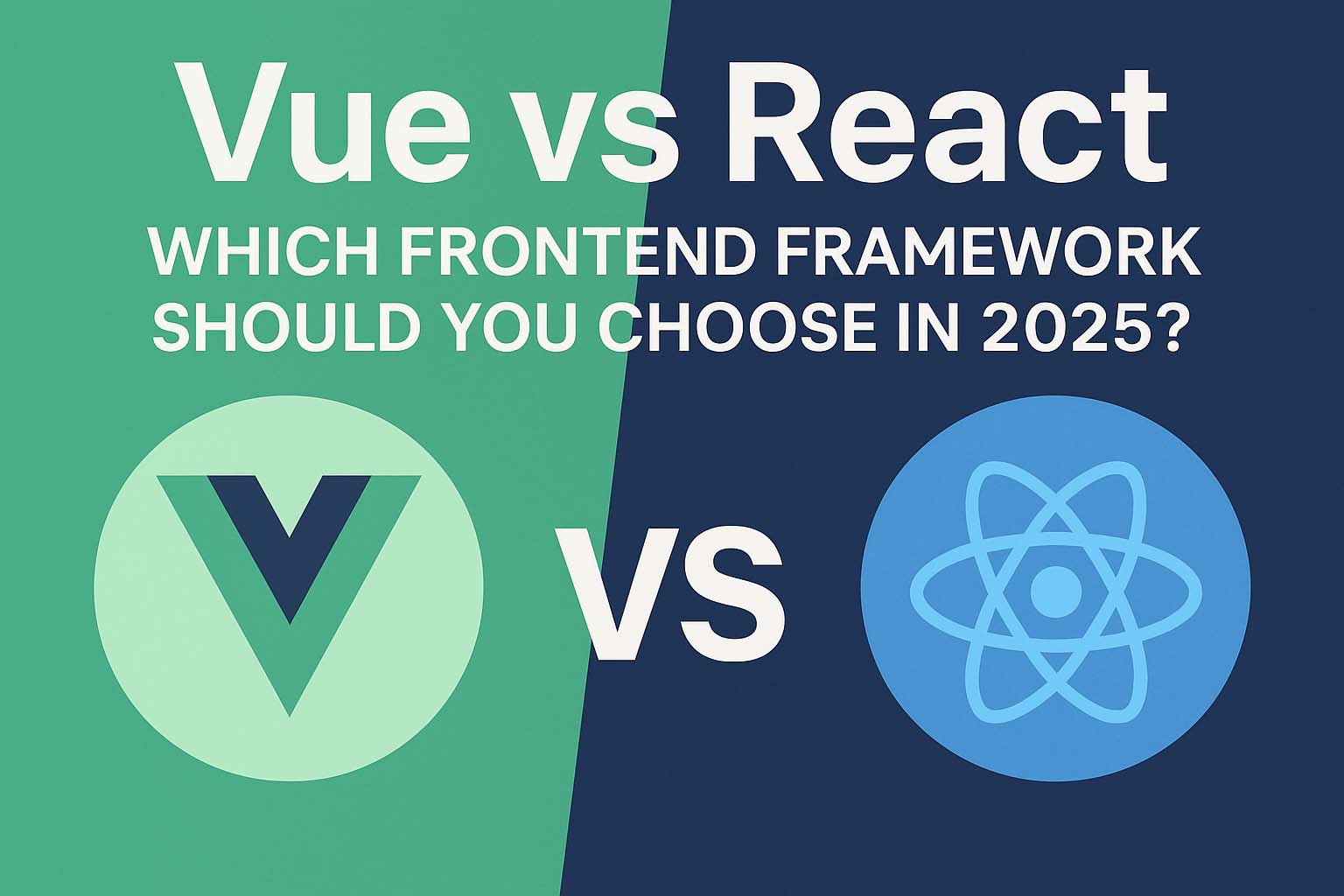Choosing the right frontend framework can make or break your web project. Among the top contenders, Vue.js and React.js continue to dominate the JavaScript ecosystem in 2025. Both offer powerful tools for building interactive, scalable, and fast applications — but each shines in different areas. Let’s dive deep into their strengths, weaknesses, and which might suit your next project best.
Overview of Vue.js
Vue.js is a progressive JavaScript framework created by Evan You. It’s known for being lightweight, easy to learn, and highly adaptable. Vue’s strength lies in its simplicity — developers can start small and scale up as needed.
Key Advantages of Vue.js
- Ease of Use: Vue has a gentle learning curve, ideal for beginners.
- Reactive Data Binding: Its reactivity system ensures smooth UI updates.
- Single-File Components: Encourages clean and organized code.
- Excellent Documentation: Vue’s docs are clear, concise, and developer-friendly.
When to Choose Vue.js
Vue is perfect for small to medium projects, or when you want to integrate a framework into an existing app. It’s also great for rapid prototyping and startup projects where time-to-market matters.
Overview of React.js
React.js, developed and maintained by Meta (Facebook), is a robust UI library for building dynamic and complex interfaces. Unlike Vue, React is more flexible but requires additional tools for state management and routing.
Key Advantages of React.js
- Performance-Driven: React’s virtual DOM ensures lightning-fast rendering.
- Strong Ecosystem: Backed by a huge community, extensive libraries, and tools.
- Reusable Components: Promotes scalability and maintainability.
- React Native: Enables mobile app development with the same React principles.
When to Choose React.js
React is best suited for large-scale, complex applications, especially those requiring cross-platform development or high interactivity, like dashboards or social media apps.
Vue vs React: Side-by-Side Comparison
| Feature | Vue.js | React.js |
|---|---|---|
| Learning Curve | Easier for beginners | Moderate, needs JSX understanding |
| Performance | Excellent | Excellent |
| Community Support | Growing rapidly | Massive and mature |
| Flexibility | Opinionated but simple | Highly flexible |
| Ecosystem | Vue Router, Pinia | React Router, Redux, Zustand |
| Mobile Support | NativeScript, Quasar | React Native |
Final Thoughts: Vue or React in 2025?
If you’re looking for a developer-friendly, simple, and elegant solution, Vue.js might be your best bet. But if you need scalability, performance, and flexibility with a massive ecosystem, React.js remains the go-to choice.
Ultimately, the best choice depends on your team’s expertise, project size, and long-term goals. In 2025, both Vue and React remain excellent choices for modern web development — it’s not about which is better, but which is better for you.


Leave A Comment